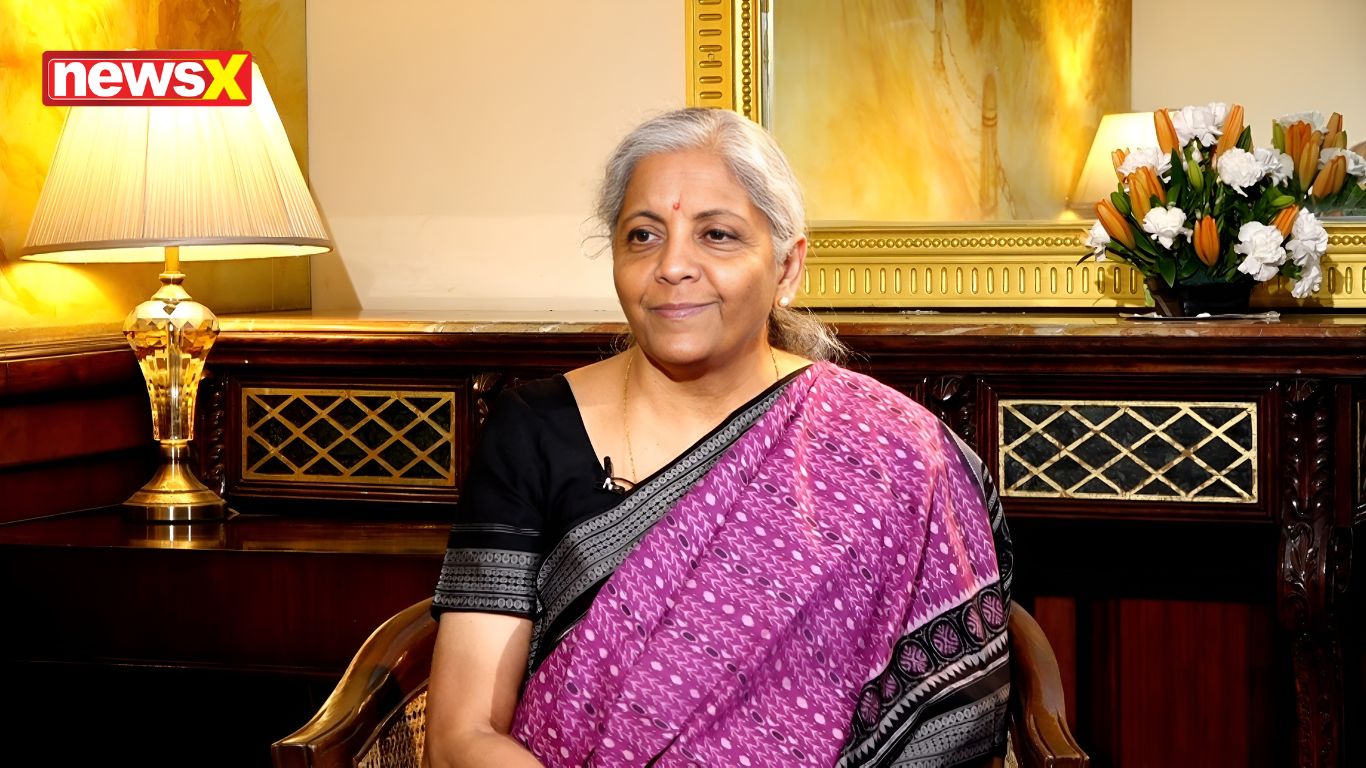In a significant development, Nirmala Sitharaman, an Indian economist, politician, and senior leader of the Bharatiya Janata Party (BJP), who has been serving as the Minister of Finance and Minister of Corporate Affairs of the Government of India since 2019, sat down for an exclusive interview with NewsX. In this interview, Sitharaman, a Union Minister in the BJP government, underscored the importance of individual rights to earn and retain wealth without undue government interference. She also questioned the rationale behind the Congress party’s consideration of an inheritance tax and expressed reservations about potential wealth redistribution policies.
During the interview, Editor-in-Chief Rishabh Gulati posed a crucial question to FM Nirmala Sitharaman, asking, “The Congress party has disowned the concept of an inheritance tax, but just before that, they introduced it. Now, Congress says it is not an official policy. But do you think that the concept of an inheritance tax would cause significant concern, especially among the middle class?”.
Sitharaman responds, saying there’s no doubt the proposal would trouble people. She calls out the Congress for not clarifying its position: ‘Instead of clearly stating that they are not in favor of it and of wealth redistribution, the Congress is only adding to the confusion by presenting conflicting statements.’
#NirmalaOnNewsX | ‘Inheritance tax comments will trouble people. But instead of saying no we are not in favour of it; the redistribution of wealth. Congress is saying only this and that and confusing it further. Why don’t they say we are not bringing the inheritance tax.’ Nirmala… pic.twitter.com/amUoAnsqmc
— NewsX World (@NewsX) May 11, 2024
The Finance Minister added, ‘What would it take for the Congress to simply say that they are not planning to implement an inheritance tax or engage in wealth redistribution? Why wouldn’t they want to make that clear? Instead, they try to cover themselves by referring to parts of their manifesto. However, when you consider both their manifesto and the statements made by senior Congress leaders during election time, it becomes evident that they are leaning towards policies like inheritance tax and wealth redistribution. This inconsistency is what’s concerning.’
Continuing the conversation, Rishabh Gulati asked, ‘So do you see an ideological difference? What is the distinction? Because other than my taxable income, which is the business of government, I don’t think anybody, especially in the middle class, wants their assets to be discussed or scrutinized.’
Sitharaman responded, ‘I am not quantifying it as an ideological difference. It’s objectionable. How does the Government of India get the authority to X-ray or scan how much you earn when earning is permitted by law? It’s not stealth, and it is not exploitation. Income is not robbery that the middle class has committed to earn something and later be told that their money is being confiscated. So, “I am going to take it away from you'” —this approach is moving in the direction of scanning how much wealth you have and then taking it away, akin to slicing off a portion of a vegetable or something and saying, “I’m going to do something with it.” It’s objectionable. By law, people can earn, make profits, save money, buy assets, and have their entire wealth. And suppose anything passes on to their children, progeny, or anybody else.’
Questioning the Congress on backtracking its claims, the Finance Minister asks, ‘Why would the Congress suddenly want to do it, and then later claim, “Oh no, it was the Congress party which removed the inheritance tax”? People have questioned it, and they can always come up with an answer. And I don’t know whether the timing of the questioning is right. Apparently, it was removed. I’m yet to check it, but it (inheritance tax) was removed after Mrs. Gandhi stepped down when the properties and estates were to move to the grandchildren. So it is all right for you to remove it and then benefit by having the wealth transferred to yourselves, whereas when others are holding it, you are saying now you want to redistribute it.”
The conversation raises questions about the extent to which the government should get involved in people’s money and whether it should redistribute wealth. Nirmala Sitharaman’s opposition to the inheritance tax idea supports people’s freedom to control their finances. Toeing the BJP’s stance, the Union Finance Minister has left it up to the Congress to explain its plans to the people of India.
WATCH THE FULL INTERVIEW ON YOUTUBE
ALSO READ: ‘PM Modi Wants To Crush AAP’: Arvind Kejriwal Addresses The Masses
ALSO READ: Anurag Thakur Discusses Modi 3.0, Quota Policies, And The Battle Of Narratives | NewsX Exclusive


















